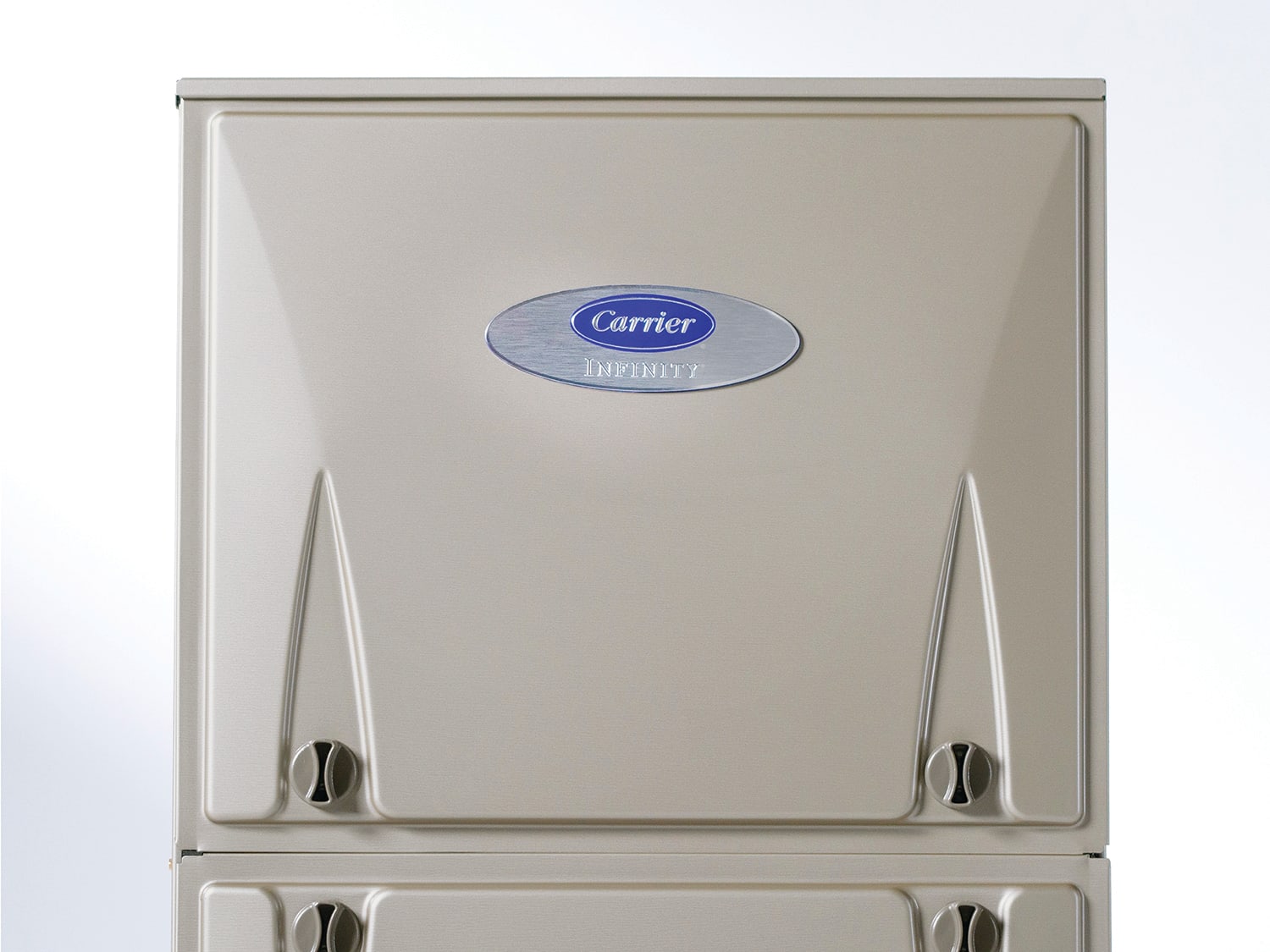Comparing Types of Furnaces
With the various types of furnaces available today, homeowners have more choices than ever. The decision usually starts with which fuel source makes the most sense for the home – gas, fuel oil or electricity. No matter which type is best for you, there’s a Carrier furnace designed to fit your needs.

All of these heating system types provide warm comfort for your home, but the best choice is often based on geographic location, the heating and cooling needs of your home, and heating fuel pricing and availability in your area. Furnaces also vary by energy efficiency ratings, and in many parts of the country are a core component in a home’s air conditioning system. In the sections that follow, we will compare the different furnaces with respect to the advantages and disadvantages of each.
Gas vs Electric Furnace

The gas vs electric furnace comparison obviously starts with fuel source, but there are some significant differences between the two in terms of installation and operating costs, expected lifetime and climates for which they are best suited.
Natural gas furnaces typically heat the home faster because they can generate warm air at higher temperatures than an electrical heat system. Because of this and due to generally lower costs for natural gas, these furnaces are best suited for colder, northern climates where the heating season is longer and more intense.
Keep in mind that other differences between gas and electric furnaces include installation and maintenance costs and expected lifespan. In these areas, electric models can have the advantage. Electric furnaces don’t require venting systems or gas hookups and can cost less to purchase and install. Gas furnaces also require more standard maintenance, so those costs will be higher as well. Electric units are often quieter than gas models and often can last longer too.
Gas vs Oil Heating
Making the decision between gas vs oil heating often comes down to the availability of the fuel source. For example, in rural areas and some older neighborhoods, natural gas pipelines aren’t, making oil heating a good option. Both use internal combustion to create heat, and both are very effective options for colder climates. However, they do have a number of differences, that we will highlight here:
Natural gas furnaces typically have a lower initial costs for the furnace itself, and the gas is supplied through a pipeline infrastructure which may not be available in certain areas.
Oil burning furnaces convert more heat per BTU than other heating sources, however they typically have slightly lower AFUE efficiency ratings than natural gas models and they also require a storage tank for fuel which can add cost to an oil furnace installation.
Both types of furnaces require regular maintenance, but gas furnaces don’t have the soot and dirt buildup of oil furnaces which can add time and cost for professional cleaning.
Oil Furnace vs Electric Furnace Cost
Looking at the oil furnace vs electric furnace comparison, let’s start by analyzing upfront costs. Average cost, including furnace installation is about $400 - $600 more for an oil furnace.1 If you need to also install a tank for the fuel oil, add another roughly two thousand dollars for the oil furnace.1 Both types of furnaces are often installed as a central, forced air type of system.
In terms of comfort, fuel oil heated homes heat up faster because oil furnaces create higher temperatures than electric furnaces. And, oil furnaces tend to be a better choice for colder climates, while electric furnaces are more commonly used in warmer climates with less need for heating.
Looking at long-term costs, fuel oil prices tend to fluctuate more than electricity. For 2020, the U.S. Energy Information Administration (EIA) was predicting the cost for heating with fuel oil vs electric heat to be very close – around $1200 per heating season.2 However, cost comparisons for the winter of 2014-2015 were quite different – an average of $960 for electric heat vs $1851 for heating oil.2
Benefits Overview for Types of Furnaces
As we compare gas vs oil vs electric furnaces, there really is no clear winner for all situations. Each has its advantages and disadvantages. The best fit is the one that matches your climate as well as your personal expectations for comfort, initial and long-term costs, and available fuel sources in your area. Here is an overview of pros and cons of each:
Gas Furnaces
Benefits:
- Low fuel costs
- High energy efficiency / low operating costs
- Warmer heating temperatures for colder climates
- No fuel tank needed
Disadvantages:
- Requires pipeline infrastructure to deliver the natural gas which might not be available in all areas
- Installation requires outside venting and gas hookup which may increase initial cost
- Potential for natural gas leak or CO infiltration
Oil Furnaces
Benefits:
- Generates more heat per BTU than natural gas
- Fuel oil can be delivered to remote areas where gas lines are not available
Disadvantages:
- Higher first cost for the furnace compared to natural gas
- Higher fuel oil prices and more cost volatility
- Lower energy efficiency (AFUE) than natural gas models
- Needs more maintenance due to more dirt and soot buildup, oil filter changes, and chimney cleaning
Electric Furnaces
Benefits:
- Lower initial cost for furnace & installation
- Longer average lifespan
- Quiet operation
- No potentially harmful gas byproducts
Disadvantages:
- Generates lower heating temperatures
- Less capable in colder climates
- High AFUE (efficiency) means it’s efficient at converting fuel to heat – but doesn’t reflect how expensive it can be to rely totally on electric resistance heating
Contact A Carrier Expert For More on Gas, Oil, and Electric Furnaces
Still having trouble deciding which option is best for you? Carrier has you covered. Not only do we offer a comprehensive family of furnaces available for residential use, we have a nationwide network of experts ready to help determine the right option for your home. Find a local Carrier expert
1https://homeguide.com/costs/oil-furnace-cost
1https://homeguide.com/costs/electric-furnace-cost
2 https://www.smarttouchenergy.com/resources/guide-to-home-heating-systems/oil-heating-versus-electric-heating
- What is a heat pump vs furnace?
- Buyers Guide: 10 things to consider when buying a furnace
- How long does a furnace last?
- Discover high efficiency furnaces
- Furnace maintenance tips
- Browse Carrier furnaces
- How do gas furnaces work?
- Cost of a gas furnace
- Learn about furnace installation
- Gas furnace replacement

